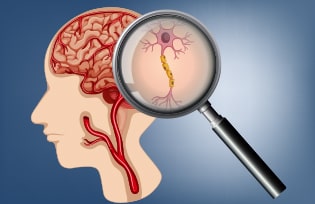
Nervous System Diseases
Principal organs of the nervous system
-Eyes –Ears –Sensory organs of taste – Sensory organs of smell
– Sensory receptors in skin, joints, muscles and other parts of the body
Nervous system disease or disorders that affect the functioning of the human nervous system. Everything that human’s sense, consider, and effect and all the unlearned reflexes of the body depend on the functioning of the nervous system. The skeleton and muscles support and transport the body, and the digestive system, heart, and lungs provide nutrients; but the nervous system contains the epitome of the human—the mind—and commands all perception, thought, and action. Disturbance or malfunction of the functions of the nervous system causes changes felt throughout the body.
Symptoms
• Persistent or sudden onset of a headache
• A headache that changes or is different
• Loss of feeling or tingling
• Weakness or loss of muscle strength
• Loss of sight or double vision
• Memory loss
• Impaired mental ability
• Lack of coordination
• Muscle rigidity
• Tremors and seizures
• Back pain which radiates to the feet, toes, or other parts of the body
• Muscle wasting and slurred speech
• New language impairment (expression or comprehension)
Your nervous system can be damaged by the followings
• Injury
• Infections
• Degeneration
• Tumors
• Blood flow disruption
• Autoimmune disorders
